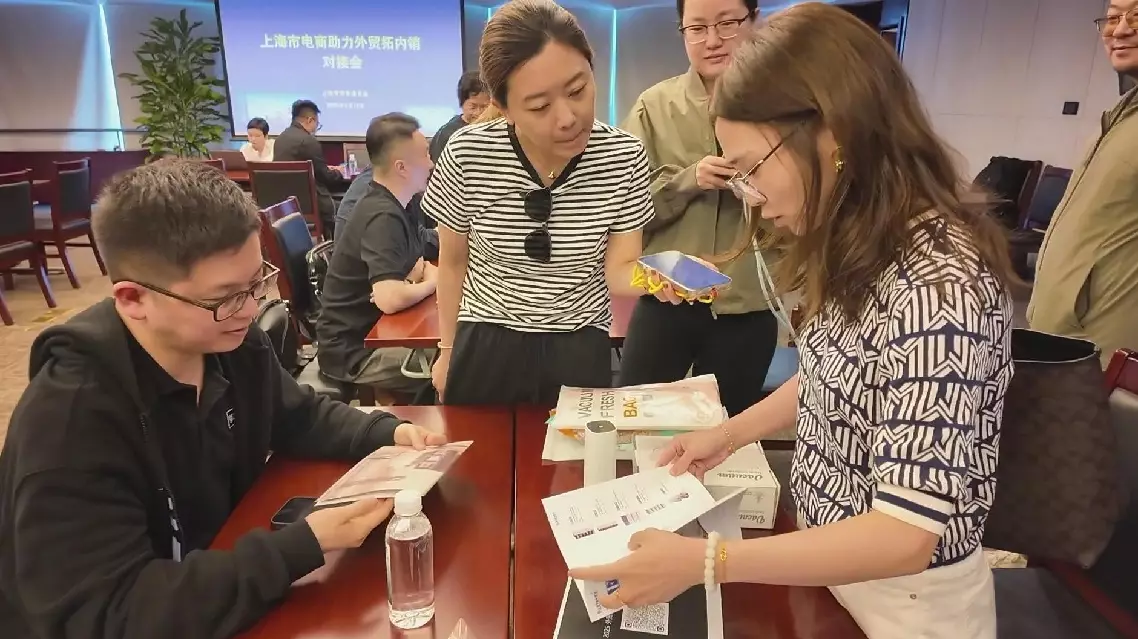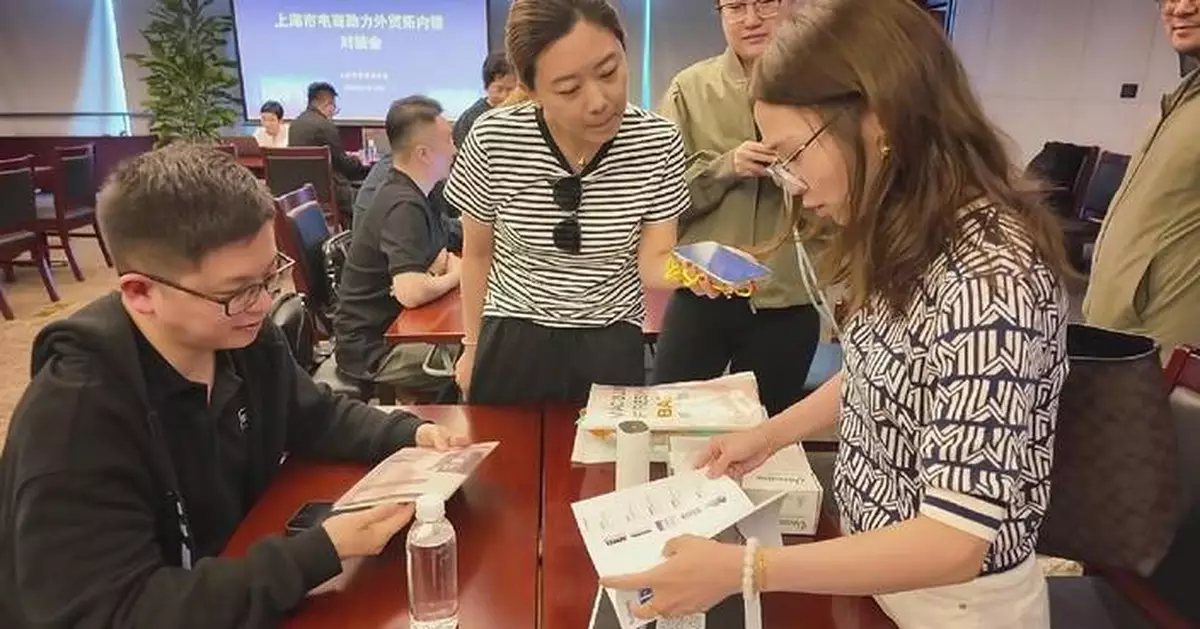Shanghai, one of China's most important trade and financial hubs, on Friday organized a matchmaking event between local exporters and domestic e-commerce firms to help foreign trade companies shift to the Chinese market.
The event, organized by the Shanghai Municipal Commission of Commerce, marks the city's latest effort to support foreign trade companies amid global trade headwinds such as recent tariff hikes against many countries by the United States.
Sixteen leading domestic e-commerce platforms and nearly 80 foreign trade enterprises based in Shanghai participated in the event.
Many of the businesspeople coming to the event expressed optimism about tapping into the domestic market, though some acknowledged that the process could be challenging.
"Most of our orders came from the U.S. market. This is the first time we're connecting with some domestic e-commerce platforms, or even international ones. We do have confidence but going from 0 to 1 is always difficult. But at least, there is some hope. Even in a crisis, we can still see opportunities," said Chen Rui, deputy general manager of Shanghai Garment Group.
Young businesswoman Lu Yan brought a full bag of samples and product catalogs to the meeting. At an e-commerce booth, she demonstrated the functionality of vacuum-sealed storage bags.
"Talking about the impact of tariffs, our current estimate is that in the recent quarter, at least 1.5 million U.S. dollars' worth of orders have been canceled. Today I'd like to get in touch with all the e-commerce platforms. We didn't tap into the domestic market until now, and the domestic market itself presents a significant challenge for us," said Lu, who is the manager of the marketing department of Shanghai Real Trading Co.,Ltd.
During the event, e-commerce platforms presented various initiatives. For example, Taobao and Tmall, both under e-commerce giant Alibaba, have designated a "foreign trade selection" section, offering a streamlined process for export-oriented merchants to join the platform on the day of registration.
Online retailer Suning.com will implement a self-operated bulk sales model for high-potential products, such as robotic vacuum cleaners, smart coffee machines, wearable devices and pet care items.
On-demand retail service leader Meituan said it will help these enterprises facilitate access to both urban and rural consumers, leveraging its advantages in delivery services.
JD. come has allocated 200 billion yuan (about 27.4 billion U.S. dollars) toward purchasing commodities originally produced for export, and plans to host business engagement meetings in regions with clusters of export-oriented businesses.
"When we export-oriented companies faced difficulties in overseas sales, we immediately felt the support from the government and other domestic sales channels. I felt particularly warm and encouraged. Pivoting back to the home market could be a new endeavor, and perhaps we are facing great opportunities. It will actually help our company grow more, because our resilience has been strengthened," said Gu Keda, general manager of Shanghai Real Trading Co.,Ltd.
Shanghai's effort to secure the stable operation of foreign trade companies and stabilize employment aligns with the nation's call to boost consumption and expand domestic demand.
China will strengthen countercyclical adjustments and focus its efforts on stabilizing employment and foreign trade, as well as driving consumption and expanding domestic demand, according to a State Council executive meeting chaired by Premier Li Qiang on Friday.

Shanghai steps up to help exporters explore domestic market





















































